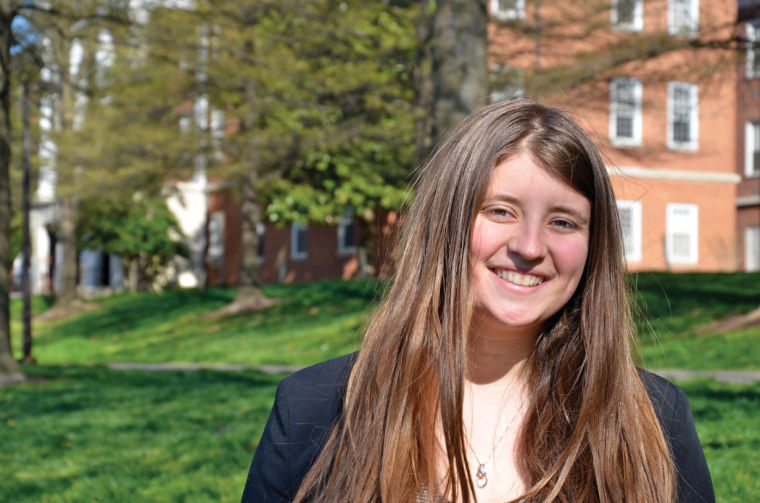
SGA President Samantha Zwerling
Samantha Zwerling easily lists the SGA’s accomplishments from this past year. But just as quickly, she can rattle off the group’s yet-to-be-fulfilled goals.
Encouraging students to vote in College Park City Council elections, making the Student Government Association more efficient and visible, implementing open-source textbooks and more, the SGA president noted. Each initiative is also one of Zwerling’s reasons for running for a second term, she said.
The organization has accomplished a lot this semester, from launching What to Fix UMD and lobbying in Annapolis, to rallying support for mental health funding ahead of the administration’s decision to dedicate $5 million throughout the next 10 years to improving mental health resources on the campus. But Zwerling said there’s “so much more to be done.”
“We did not expect to accomplish everything on our platform last year,” she said. “To an extent, it was a two-year plan.”
When Zwerling, a junior environmental science and policy major, was elected a year ago, her Go Party had a 50-page platform. This election, the platform has only 26 pages because she wants to finish what she has started.
“Now I am much more aware of what is feasible and what is not,” Zwerling added. “I really figured out how this role [as SGA president] and this university work.”
Josh Ratner, the Go Party’s student affairs vice presidential candidate, said Zwerling’s approach works for the university because it focuses on realistic plans for actions.
“It would be a disservice for students if we stop the strong momentum that she created this year,” Ratner said.
While Zwerling has built relationships with university and local officials, and a knowledge base on campus and state politics, she said she knows many voters will be unaware of the SGA’s work.
“I think that’s what this campaign is really about,” she said. “It’s talking to students about our record and also getting their input.”
Since Monday, 40 party members and 20 volunteers dressed in black T-Shirts with a green Go Party logo have spoken to more than 2,000 students, Zwerling said.
“Students will know that we care about them, that we can help them and can have an impact on daily lives,” she said. “At the very heart of it, nobody is going to vote because of a Facebook post — people are going to vote because you had a conversation with them and you engaged them.”
Liz Pandya said serving as Zwerling’s student affairs vice president has been a “tremendous experience.”
“It’s quite powerful when you’re sitting in a room with five or six people that are just such strong thinkers and really thinking about the future of the student body and the future of the University of Maryland,” she added.
Zwerling also anticipates high expectations among students who have noticed the SGA’s productive year, especially when it comes to work she could not tackle during her term.
She did not establish a presidents’ forum — a meeting between student group leaders to discuss issues such as the agenda of the University Senate or organizing students for rallies. And a polling initiative created this year — in which SGA representatives poll students on a set of questions each week — is still not creating more outreach across the campus. Not all representatives poll students on a weekly basis, so the system isn’t yet having its desired effect.
However, she added, every criticism she gets is “totally worth it,” even with a schedule packed to the brim with meetings, exams, papers and events.
“I just want to finish up this campaign and get back to what I have been doing, which is making sure student voices are heard and represented, making sure that we are included in conversations and making the student experience better,” she said.
newsumdbk@gmail.com



